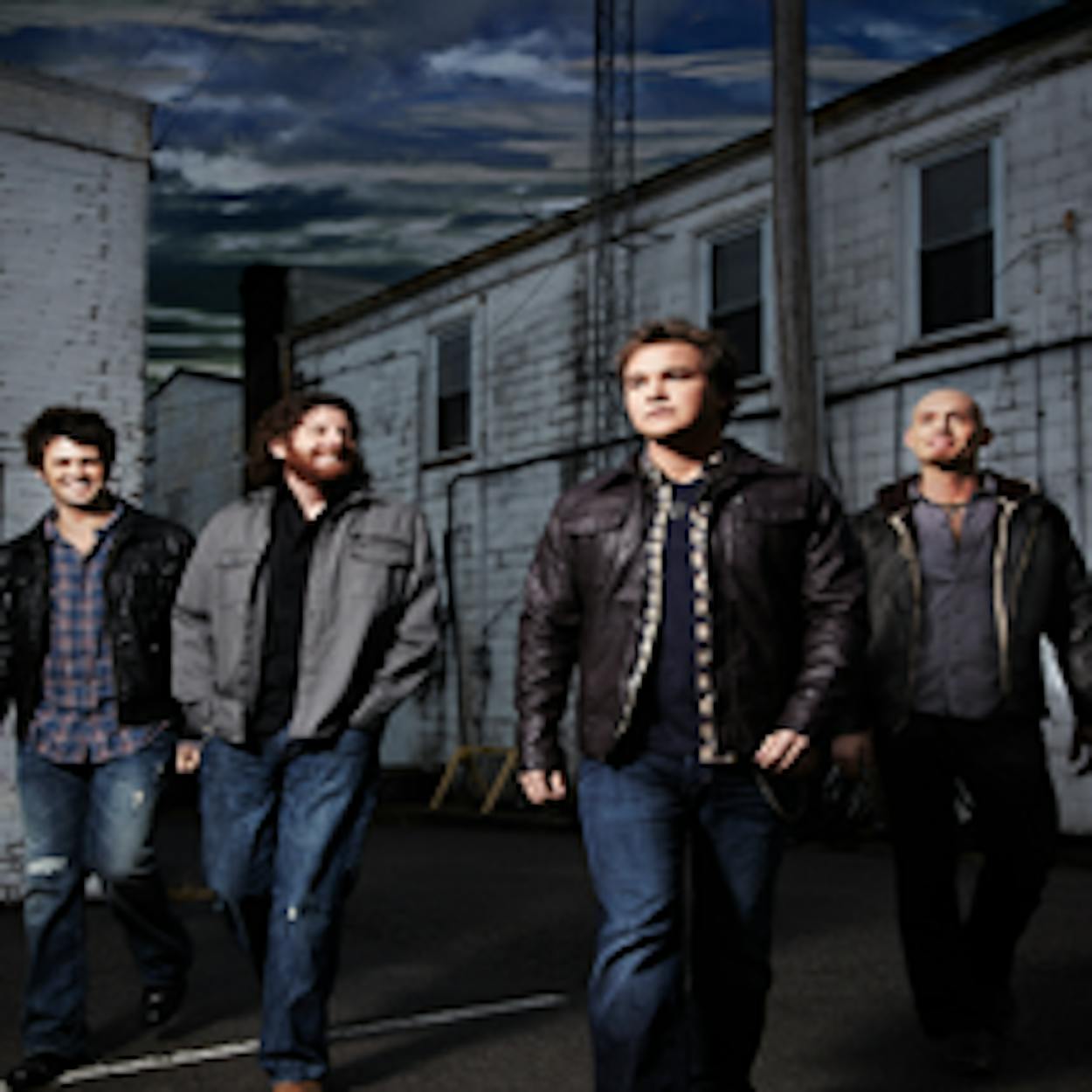As the Aug. 16 release of their fourth studio album approaches, life on the road for Texas’ Eli Young Band is predictably routine: long bus rides and early wake-up calls are quickly followed by phone interviews, sound checks, more interviews, dinners with country radio programmers, and meet-and-greets with fans. The pace can feel simultaneously dizzying and dull. But then there’s the sing-along. At each show, Mike Eli, the band’s lead singer, turns the microphone toward the crowd, which eagerly sings a chorus or three of “Crazy Girl,” the highest-charting and fastest-climbing single of the band’s career.
“It’s an incredible feeling,” Eli said. “When the crowd sings so loud you can’t hear yourself singing, it’s pretty powerful.”
In some way, Eli said, the sing-alongs feel like validation for what’s been a hard-fought success story. In 2000, the band’s eponyms—Eli and the guitarist James Young—started gigging while they attended the University of North Texas. The subsequent years, often filled with 200-date touring schedules, yielded their first major label record deal, a pair of Academy of Country Music award nominations and a 2008 album, “Jet Black & Jealous,” that sent three songs to the Billboard country charts.
But none of those hits came close to the trajectory of “Crazy Girl,” the centerpiece of their forthcoming album “Life at Best.” In March, the song debuted at the top of the iTunes country songs chart with more than 47,000 downloads the first week. Since then it has averaged 30,000 downloads per week, and the Recording Industry Association of America recently certified it Gold for selling more than 500,000 downloads.
Given those pre-release single sales, “Life at Best” seems poised to debut in the top five of Billboard’s Country Albums chart and perhaps within the top ten on the genre-crossing Billboard 200. Those numbers would signal not just a national breakthrough for the Eli Young Band, but also something of an anomaly for a band so closely associated with what’s become known as “The Texas Country Scene”—a community of artists who have built cottage industries out of relentlessly touring across Texas and independently selling records.
Over the years, the band has played alongside many of the scene’s torchbearers, from Kevin Fowler and Cory Morrow to Wade Bowen and the Randy Rogers Band. And while Pat Green and Jack Ingram—two performers many consider the movement’s architects—have enjoyed some national success, legitimate breakouts are rare.
“I once had a radio programmer question a Texas band’s success by saying, ‘Sure. They play there all the time,’” said Jimmy Harnen, president of Republic Nashville, the band’s label. “And I asked if they’d been to Texas lately. They’re not riding around on stagecoaches. Dallas has schools and Starbucks like they do in Seattle or San Francisco. That it somehow matters geographically where a band worked hard and proved on their own that people would buy tickets and albums never made any sense to me.”
If there’s a single factor why Texas Country acts have difficulty finding success nationally, it’s the theory of financial complacency. When you add shows, albums sales, royalties from regional radio play and merchandising, the scene’s top acts can earn $1 million or more in-state every year. Bands with national hits are expected to play radio-sponsored shows in cities with a major country station, often for little to no money.
“The moment you really start trying to play out nationally, you’re making less money,” Eli said. “You’re making a sacrifice to grow your fan base. You just have to look at it as an investment.”
Relative to other Texas Country acts, the Eli Young Band established a national audience early. They earned their first record deal after opening for Miranda Lambert in 2003 (pre-“Nashville Star”), and the success of the 2008 single “Always the Love Songs” earned the band receptive ears in February when they crisscrossed the country playing selections from “Life at Best” for influential radio programmers. “Crazy Girl” emerged as a single, but there are still challenges: convincing programmers that the song can fit on playlists between Brad Paisley and Sugarland, and that it’s not the album’s only hit.
“It definitely helped that we had a little bit of history and heard other songs on the record that sounded like hits,” said Nate Deaton, the general manager of KRTY, a station in San Jose, Calif., that was an early supporter of the Eli Young Band. “It doesn’t make sense for us to play one-and-done songs. Look what happened to disco. You have to build careers.”
The follow-up single hasn’t been selected yet, but in the meantime, the band’s current headlining tour has already sold out in cities like San Diego, Denver, Chicago, Kansas City and Memphis—places that are rarely strong markets for bands from the Texas Country Scene.
No matter the success of “Crazy Girl” and “Life at Best,” Eli is adamant that his band isn’t going to shy away from playing Texas or disavow itself from Texas Country. “There’s never been a day where we told ourselves Texas was enough. We want to take this thing as big as we can take it,” Eli said. “But when you’re playing shows in Texas after you’ve been outside the state, you’re almost kissing the ground. Texas audiences sing every song. They buy the records and listen to it in its entirety. It’s not just about the single.”







